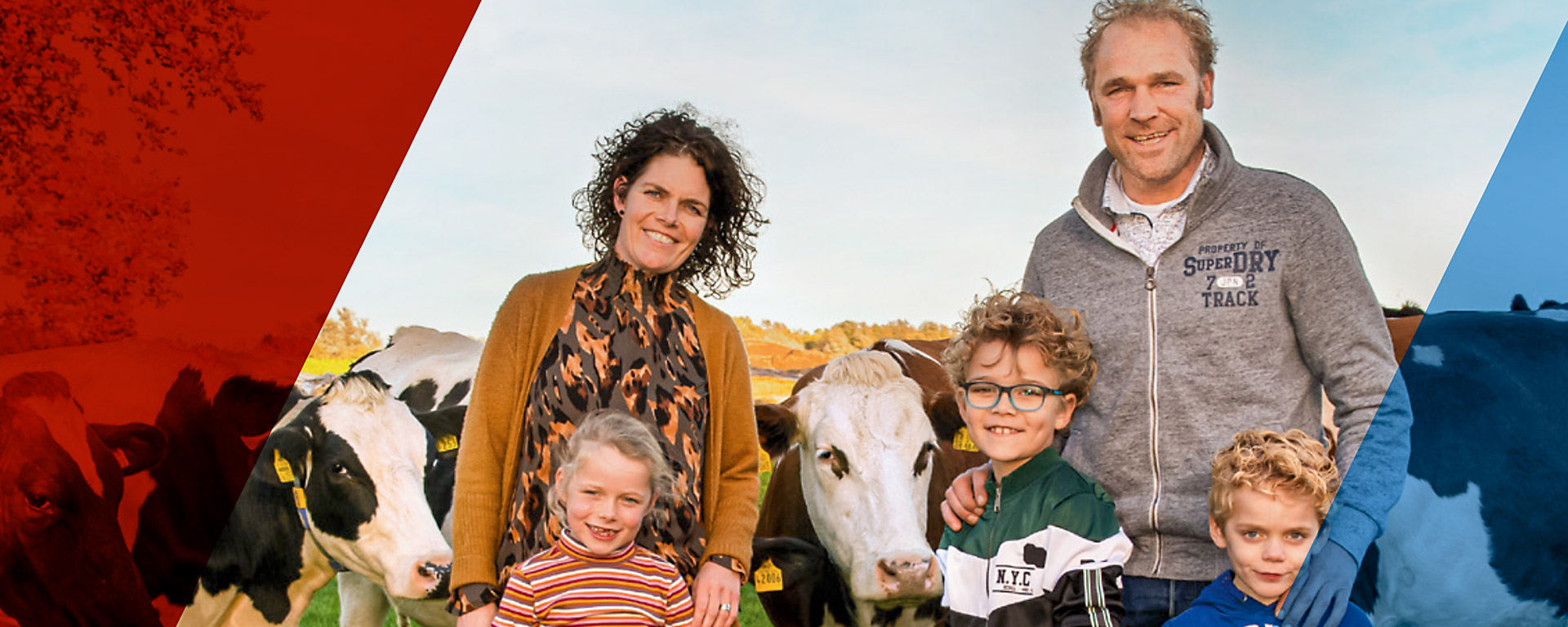“We actually never run out of ideas”


“Our cows are like top-level amateur footballers. On weekends, they sit around in the pub until half past three in the morning, then have a kebab, but they’re back on the pitch by early morning. You can always rely on them. We are the sixth generation to live on this farm. The Zanderinks survived Napoleon, the Eighty Years’ War, Spanish flu, two World Wars and the pandemic. Whenever we find ourselves in another tough patch, I always come back to that. My grandparents kept ducks, chickens, geese, pigs, sheep, cows and horses. Plus they produced grain, turnips, grass, hay and wood. To manage all that, they employed four farmhands who also lived with them. Over the decades, the farm became more specialized. My father dropped the chickens, the geese and part of the arable farming and focused on sows, fattening pigs and cows. Every generation gets rid of something and builds up something else in its place. I took over the farm in 2002 and demolished the pigsties and the tie stall. In 2015 we built a new milking parlor and put in a cubicle system for 128 cows. But we still need more sources of income to be able to run the business so we rent out two holiday flats on the farm.
“The Zanderinks survived Napoleon, the Eighty Years’ War, Spanish flu, two World Wars and the pandemic.”
We don’t see hosting guests as a tiresome sideline, it is actually a family tradition that dates back to World War II. My grandmother took people in from the west who had been severely weakened by the famine. That helped them regain their strength and they were very grateful to her. One of the families, now the fourth generation, still comes back to us every year. We have two sons and a daughter who one day will hopefully follow in our footsteps. My wife handles the flats, she does the bookkeeping, manages the reservations and keeps the apartments clean. We want our guests to feel comfortable and we make sure there’s always coffee and raisin bread on the table. They make their own breakfast themselves, so it’s not too much work. My wife is then free to help out on the farm or take care of the children. Hosting people is interesting and we learn a lot. We always have people who have never seen cows up close and suddenly find themselves, practically living among them. So we explain how often we milk them, why the cows are in the pasture or the barn, where the milk is delivered and what the difference is between a regular farm and factory farming. They learn something and they also get a chance to taste fresh milk at the same time. Some guests already know how life on a farm works, and we even get some farmers, who prefer to have this kind of a break and value the peace and relaxation in the region, instead of say going to a holiday park. We actually never run out of ideas. At the moment we are setting up a natural burial ground in our 13 hectares of forest on the banks of the Dinkel. Over the past four years, we also took soil probes, did ecological investigations of the flora and fauna and checked the nitrogen emissions, soil types and groundwater levels. We are looking into how our cemetery plan can be integrated into the council’s spatial development guidelines. I think that we have enough room for a good number of graves. The one-time costs for a place in a natural cemetery partly go into a fund to care for and maintain the grounds, which ensures the cemetery can keep going for a long time – and hopefully our farm will too.